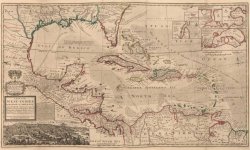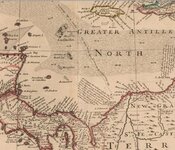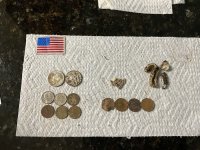Colombiapictures
Full Member
- May 7, 2010
- 123
- 71
Huguette and Pierre Chaunu, SEVILLE ET L’ATLANTIQUE, vol. IV, p. 200
The San Martin and the San Gregorio returned to Seville in October 1606.
Two lines, but what a story.
The story of 4 ill fated galleons.
SAN ROQUE, CAPITANA
SANTO DOMINGO, ALMIRANTA
SAN AMBROSIO
NUESTRA SENORA DE BEGONA
Four of the richest galleons, shipwrecked on the first of November 1605.
Never found.
Never salvaged.
Where are they?
Below is a chart of about 100 years later. The route of the galleons is clearly marked.
Now, where on this chart did the disaster happen?
The San Martin and the San Gregorio returned to Seville in October 1606.
Two lines, but what a story.
The story of 4 ill fated galleons.
SAN ROQUE, CAPITANA
SANTO DOMINGO, ALMIRANTA
SAN AMBROSIO
NUESTRA SENORA DE BEGONA
Four of the richest galleons, shipwrecked on the first of November 1605.
Never found.
Never salvaged.
Where are they?
Below is a chart of about 100 years later. The route of the galleons is clearly marked.
Now, where on this chart did the disaster happen?









